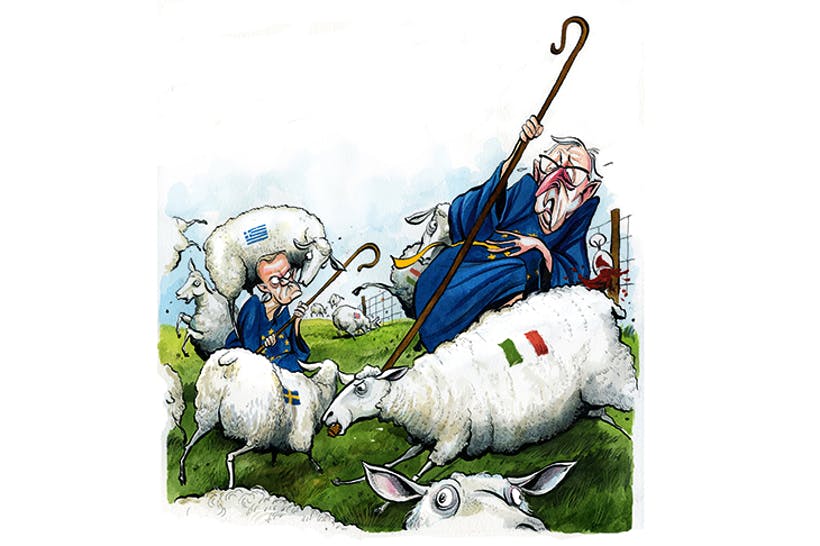This week, the new Italian coalition’s proposed government was blocked by the Italian President, giving EU grandees in Brussels a cause for celebration. But is the EU way too controlling of rebellious member states? On the home front, would a Eurozone crisis help or hinder Brexit negotiations? We ask Nigel Farage. And last, is Mueller’s special investigation into potential Russo-Trump collusion going anywhere?
First, Brussels has got a problem. Across Europe, populist politicians are winning elections on Eurosceptic platforms. Douglas Murray argues in this week’s cover piece that even though the public has spoken, Brussels just can’t handle democracy when elections don’t go their way. That’s why, he writes, Italy’s populist coalition has prematurely met its end. So is the EU really so controlling? Douglas joins the podcast with Tom Nuttall, the Economist’s Charlemagne columnist. Douglas gives his take on the fate of Finance Minister nominee, Paulo Savona:
‘The fact that somebody who has even played around with these ideas [of leaving the EU] and sometimes posited them is deemed to be unacceptable by the President, on behalf of Brussels, is, I think, a profoundly serious challenge for people who believe in democracy.’
Now if the Eurosceptic coalition in Italy wins again in another election, Brussels may have to deal with rebellion from an EU founding state, which could cause another Eurozone crisis. Would this help or hinder Brexit? Even the Brexiteers are split on this question, but James Forsyth puts his money on it helping Brexit, and he explains why in this week’s issue. He joins the podcast with Nigel Farage, who needs no introduction. Inevitably, the conversation turns to how Brexit is going in general… Nigel says:
‘I think if this downturn that may come as a result of the Italian crisis leads to a liquidity crisis in the banking sector, then effectively, the city of London is almost a lender of last resort.’
Across the pond, Robert Mueller’s special investigation doesn’t seem to have had much success. Byron York, from the Washington Examiner, writes in this week’s magazine that Mueller isn’t closing in on Trump, and the Democrats are twisting over backwards to get impeachment. Has the investigation really been so lacklustre? Freddy Gray, Editor of Spectator USA and David Priess, author and former CIA officer who worked with Mueller, discuss on the podcast. David defends the progress of the investigation:
‘There have been 19 people indicted, three companies indicted, five plea deals, there’s one person in prison already. When we compare this to previous investigations, that were frankly less complex, and less international than this one, it does show you there is progress being made.’
And if you want to find out more about the Spectator’s take on US politics, why not listen to the Americano podcast, where Freddy talks all things America with special guests.
To subscribe to this podcast and many more, visit the iTunes store.








Comments